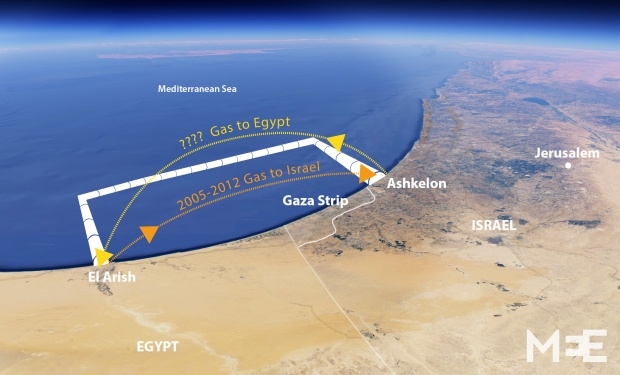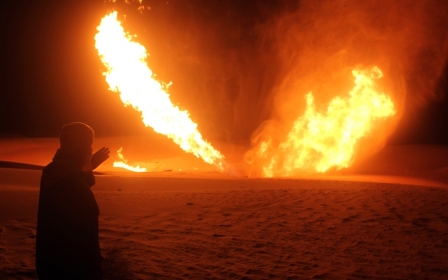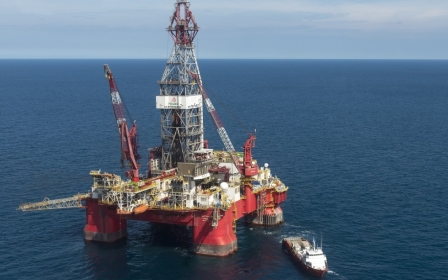Egypt, Israel near major gas deal

Egypt and Israel are reportedly finalising a deal that could mean the sale of $60 billion in Israeli natural gas to liquefication plants in Egypt.
US-based Noble Energy and units of Israel’s Delek Group Ltd plan to deliver as much as 6.25 trillion cubic feet of gas from Israeli offshore fields to LNG facilities in Egypt’s Damietta port and the coastal town of Idku, according to a Bloomberg report.
Executives told Bloomberg that they expect to finalise the agreements, which will bring billions of dollars a year of export revenue to Israel, by year-end.
Israel's Tamar and Leviathan offshore oil fields , discovered in the past few years, offer Israel enough gas to last for decades which is why the country is now looking to export surplus.
With LNG facilities within easy reach of European and Asian markets, Egypt looks to be the export partner of choice.
The deal would be a reversal of a years-long gas flow between the two countries in which Israel paid some of the lowest natural gas prices in the world to Egypt.
In the previous deal, Egyptian-Israeli company East Mediterranean Gas (EMG) would buy gas from the Egyptian government at prices significantly under both European and Asian market value at tht time. EMG would then sell the bargain-basement gas to the Israeli Electric Company at prices that were also under market value, but slightly higher than what EMG had paid.
The deal benefitted Egyptian and Israeli elites and eventually became a major bone of contention ahead of the overthrow of former Egyptian President Hosni Mubarak, as Middle East Eye reported in June. The total damages incurred as a result of Egypt's under-pricing of gas is estimated at $11bn.
When Mubarak was overthrown in February 2011, armed local groups in the Sinai Peninsula blew up the pipeline at least 14 times.
The state-owned Israel Electric Company incrased its rates by a third and warned of rolling blackouts to deal with halted supplies after repeated attacks. The pipeline eventually closed in 2012.
Unable to provide a 25-year supply of gas as agreed, the Egyptian government is being sued by various companies and individuals along the supply chain.
In total, Egyptian debt and legal liabilities could be as high as $20 billion, an amount that some might say would put pressure on the Egyptian government - along with unprecedented blackouts in the country of up to eight hours a day - to buy the gas in the new offering.
The deal highlights the warming of relations between the two countries since former army chief Abdel Fattah el-Sisi took power in a coup last July.
The timing of the current deal comes as Egypt acts as a mediator between Israel and Palestinians over the most recent Gaza conflict.
New MEE newsletter: Jerusalem Dispatch
Sign up to get the latest insights and analysis on Israel-Palestine, alongside Turkey Unpacked and other MEE newsletters
Middle East Eye delivers independent and unrivalled coverage and analysis of the Middle East, North Africa and beyond. To learn more about republishing this content and the associated fees, please fill out this form. More about MEE can be found here.




